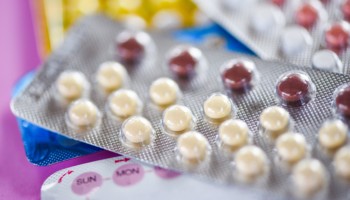By decisions dated 30 July 2018, then confirmed in the appeal by decisions dated 30 August 2018, the Court of Milan dismissed PI requested by ICOS and its licensee Eli Lilly against Sandoz, ascertaining the prima facie invalidity of the ICOS patent EP 1 173 181 for a Tadalafil dosing regimen.
Background
EP 1 173 181 (“EP ‘181”) relates to a dosage regime for the PDE5 inhibitor Tadalafil for the treatment for erectile dysfunction (ED), claiming doses of 1-5 mg of Tadalafil up to a maximum total dose of 5 mg per day.
Sandoz filed negative PI proceedings in the Court of Milan, seeking an urgent declaration of non-infringement of EP 181 by its generic tadalafil medicinal products at doses of 10 mg and 5 mg.
After the launch of these products on the Italian market, ICOS and Eli Lilly reacted by filing PI proceedings, then joined with the negative PI proceedings previously initiated by Sandoz.
In the first instance proceedings the Court decided to appoint a Panel of three Technical Experts to assess the requirement of the fumus boni iuris, i.e. the likelihood of the validity and infringement of the patent at stake.
Agreeing on what argued by the Panel of Technical Experts, the Court – in first instance and then in the appeal – deemed EP ‘181 likely invalid and denied the PI.
The reasoning of the decisions
The Court of Milan recognised the invalidity of the US priority since Tadalafil was not explicitly and unambiguously described in the priority: indeed it was not clear that the compound indicated in the US priority corresponds to Tadalafil.
Then the Judges ascertained the prima facie invalidity of EP ‘181 for lack of inventive step.
In particular the Court assessed the obviousness starting from the closest prior art WO 97/03675 (“WO ‘675”), disclosing, inter alia, the use of Tadalafil for the treatment of ED, with a dosage range of between 0.5 mg and 800 mg per day, preferably 50 mg.
The technical problem to be resolved has been identified in providing a medicinal product containing Tadalafil as active ingredient in the treatment of ED, that is improved compared to the known treatment with the other PD5 inhibitor, sildenafil, in reducing the side effects typical of these inhibitors.
Being aware of the problems given by sildenafil, due to the fact that PDE5 inhibitors has a small separation between the therapeutic dose and side effects, and knowing that tadalafil has an in vitro activity higher than that of sildenafil, the skilled person would have explored a low dosage interval, induced to do it by two pointers.
Firstly, he would have considered Abstract no. 319 of Whitaker et al., which, even though not expressly mentioning Tadalafil, described the compound under study therein, named “IC351”, as a potent and selective PDE5 inhibitor and reported studies with low doses of 2, 5, 10 and 25 mg, with reduced side effects.
Secondly, he would have known from EMEA Guidelines on dose-response information, that for a drug with a small demonstrated separation between its useful and undesirable dose ranges, the recommended starting dose might best be a low dose.
In other words, the skilled person would have seen in tadalafil of WO ‘675 a potential candidate for solving the technical problem of improved treatment of ED, more potent than sildenafil, thus with possible efficacy at lower doses and hopefully with less side effects. The expert would also have taken into account the recommendations of the EMEA Guidelines and would have addressed to a clinical study with initially low dosages, as described in Abstract no. 319, so achieving the invention without any inventive step.


